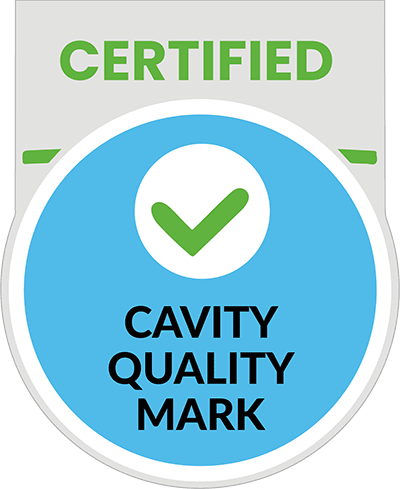Before the interview
1. Plan your journey
Look up the address of the dental practice that you’re going to and ensure that you allow plenty of time to get there. If you’re using a car, consider traffic, finding a place to park and time spent walking to the practice. If you are using a bus or other means of transport, check the leaving time and consider taking an earlier bus or train to ensure that you will be on time. Also, check online for any potential strikes or other disruptions.
2. Test your digital devices
Usually, dental nursing interviews are in person, however, should you have one online make sure you check you have a good connection and that you can easily access the platform where the interview will be conducted. Double check that your microphone and camera are working fine beforehand too, give it a test run and find a quiet space where you will not be interrupted.
3. Research the dental practice
Look up the place where you’ll be going and find out about their philosophy, interests, and the range of dental care they provide. This will help you become familiar with the place that you’ll be going into, impress your prospective employers, and at the same time give you an opportunity to see if you’d like to join that dental practice and team. It might be that they are using some technology that you are particularly interested in, or their area of expertise includes a specialisation that you wish to gain experience in.
4. Review your qualifications and skills
Be prepared to answer questions about your education and skills gained. Employers will be interested in whether your experience aligns with the job role and may wish to expand on the information included in the CV. This is not something that you should over prepare but have some general ideas in your mind which you can use to build your answers around. Remember, this should be information that you can easily recall as it relates to things that you have done daily in your previous role or during your school activities.
5. Know what the role entails
Make sure that you know the responsibilities of the job and the required skills for it. Employers may ask questions on how you would be able to fulfil these, for example, they may ask about your communication and an example of effective communication in a scenario previously. Even if this if your first job in dental nursing and you may not have specific examples on the subject to demonstrate your skills, use other experiences to prove this. For patient care skills, use can use examples of caring for another member of the family or for a friend or volunteering work.
6. Pre-empt usual questions
The benefits of preparation cannot be underestimated when it comes down to succeeding in your dental interview. Think about questions that they may ask you. Some examples can include:
role and duties of the dental nurse, knowledge and use of different dental instruments, demonstration of teamwork, compassion, patient care, or communication skills. Some common examples include:
- Tell about yourself?
- What are your strengths and weaknesses?
- What attracted you to dentistry?
- Why would you be suited for this role?
- What is your greatest strength for dental nursing?
- Give me an example of where you have demonstrated good team working skills?
- What are your long term goals?
7. Prepare your answers
Think of examples in your work and personal life that you could use to best display your answers. You can have one or a couple of answers of key activities to demonstrate any required skills. To help you give concise answers, you can use the STAR method, which will give a framework to present the events and prevent you losing track and not answering the question. The abbreviation stands for Situation-Task-Action-Result.
Be honest about your skills. Overselling yourself as being more knowledgeable or skilful than you are, can backfire when you are on the job, and you don’t know how to solve things. Also like any other lies, it’s only a matter of time until it surfaces, and you don’t want to give reasons to your employer to doubt your ethical qualities. Remember, dental professionals have a moral duty to be honest to their patients.
8. Practice your answers
Practice examples with your family or friends to help you organise your thoughts, give succinct answers as that will give you confidence for the interview day. We all get nervous before and during interviews, but practicing beforehand helps ease those nerves and gets you used to answering questions. You can use your phone to record yourself and reflect on where you can improve your performance. The key here is to not over prepare and memorise answers, you cannot know exactly what they will ask you and trying to recall word by word stored information will only make you look tense, and interviewers will be able to read that. Have some general bullet points in your head that you can use to build your answers around. As a dental nurse you will need excellent communication skills so employers will be looking for that during the interview. Listening as much as talking and not interrupting the interviewer are part of effective communication.
9. Bring copies of CV and cover letter
The interviewer will have a copy of both and would have read them. It may help you to skim over the CV’s content before the interview starts. Having some copies for any eventuality will not
hurt and will show that you are prepared and organised should the employer ask you for a copy.
10. Be punctual and polite
Arrive 10 -15 mins before the interview and introduce yourself to the reception staff, wait patiently until the interviewer will come to meet you. Don’t interrupt and listen carefully to the
information given. Be respectful that there will be patients attending the practice so don’t speak loudly. Be mindful that staff will be working in the practice and as you walk through, you may need to give them space to pass through with instruments or equipment.
11. Professional look
Make sure that you look tidy and are dress smartly for the occasion. First impressions are important, and this will be the first and only time when the employer will meet you before deciding
whether to give you the job or not.
12. Switch your electronic devices off
Ensure that there will be no awkward interruptions during the interview by putting your phone on silent or switching it off. This shows professionalism and demonstrates that you are organised.
Should you need to leave your phone on to be contacted (childcare purposes or other important commitments) do let the interviewer know.
13. A smile goes a long way
Show your enthusiasm for the job and smile! Dental nursing can be demanding and having friendly and kind colleagues will make the workplace much nicer.
14. Non-verbal communication
What you say matters, but how you present and carry yourself can reveal more than you think. Maintaining eye contact demonstrates interest in the conversation and confidence so avoid looking down or somewhere else during the interview. Avoid crossing your arms as these can show defensiveness and closure. Keeping a straight back and avoid fidgeting as this can be distracting.
15. Keep calm
Before you go into the interview, drink some water, and do some breathing exercises to relax you. Taking a few seconds to gather your thoughts before answering is ok and it will help you organise your answers. Take deep breaths throughout the interview, speak clearly, and pace your speed. Speaking too fast will only exacerbate that feeling of anxiety. Ensure that you finish pronouncing the words fully in sentences, this may help if you start to speak too quickly. Similarly, you don’t have to feel that you must fill every second of the interview, so don’t stress if there are moments of silence throughout. The interviewer will allow you extra time should you need to gather your thoughts and wish to add anything else.
If you don’t understand the question, don’t be afraid to ask to repeat or rephrase. This can happen due to stress and there is nothing wrong with this or you will not lose any points. It’s better
to ensure that you understand what is being asked of you instead of wasting the time not answering the question or staying in silence. Interviewers are used to this and will help you along the way to get the most out of the interview.
16. Keep positive and confident
Remind yourself that this is a day full of opportunities for you to embark on a new and exciting journey. Be positive and believe in your abilities to succeed in the interview. Show confidence by
maintaining an open posture, expressing your strengths, and asking questions. This isn't a bad thing, as long as you don’t brag too much about yourself and speak over the top of the interviewer.
17. Ask questions
Prepare some questions and show your engagement in the job. This will be a good opportunity for you to find out any information that isn’t directly available on the advertised job description. For example:
- Flexibility in working hours
- Potential for development and funding for courses
- Type of equipment that they use
- Any other benefits
Find out as much as you can about the job because although the employer enables you to work there you must be happy with your decision after the interview.
18. Follow up
After the interview, it is courteous to send an email thanking them for the opportunity and their time. This further reinforces your interest in the job and who knows, might help you stand out from the crowd.
19. Be patient
Depending on how many interviewees they are seeing, the wait for an answer could be a few days or longer. Wait for them to contact you and resist the idea to call or chase an answer via email.
They will be in touch soon one way or another.
20. Ask for feedback
In the eventuality that you were unsuccessful, find out why they thought that. Ask for feedback so you can reflect on this, it will only help you with other interviews and maximise your chances of improving and securing your dream job.


